In the Shade of The Tree of Life
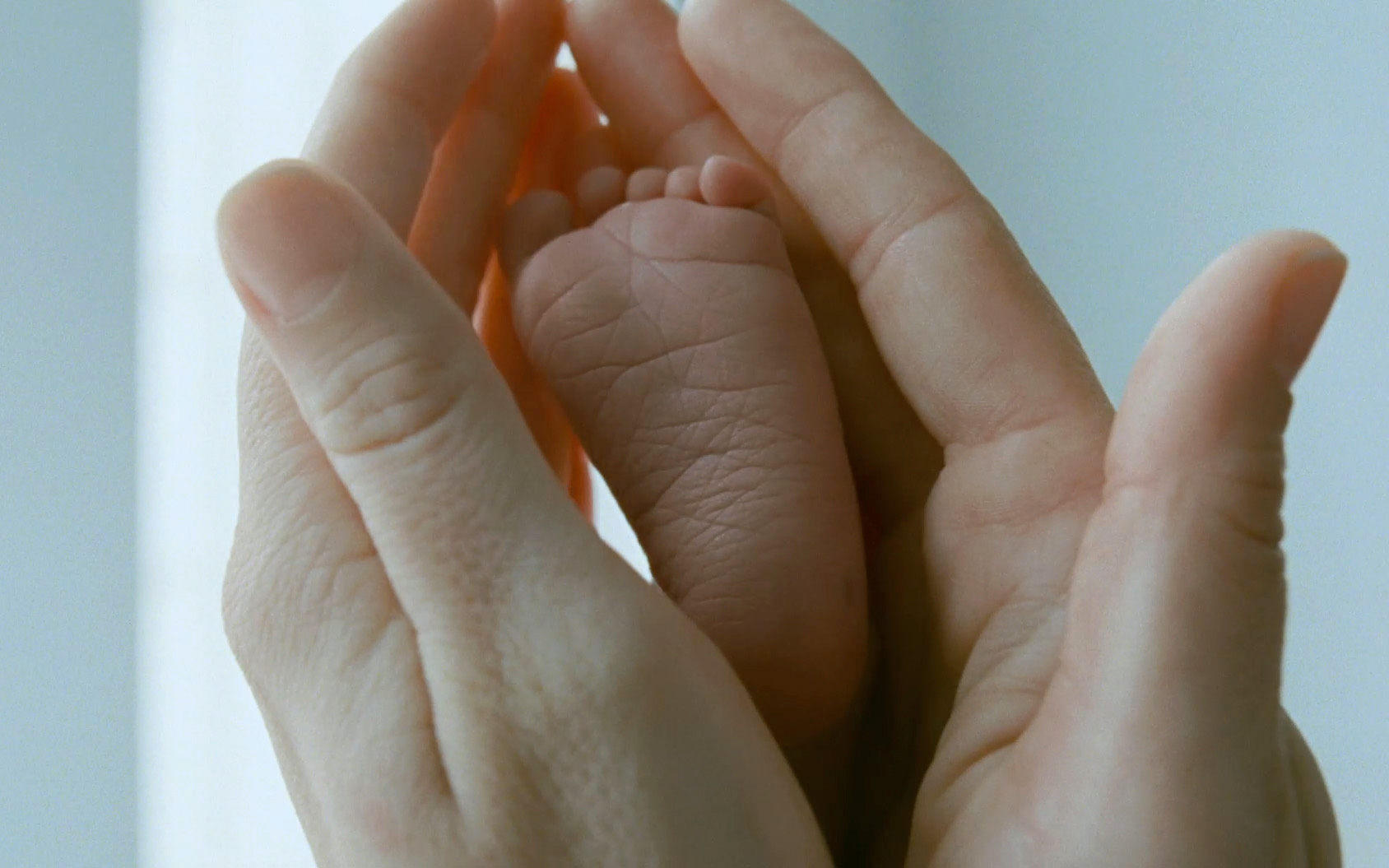
First, a few caveats. I’m not sure that it’s possible to spoil a film like The Tree of Life, but this review (or whatever it is) contains material that some might consider spoiler-esque, so consider yourself warned. Also, this a rather non-linear attempt at capturing my impressions of The Tree of Life, an approach that seems rather appropriate given the film’s non-linear structure. So with that out of the way…
1) Memories
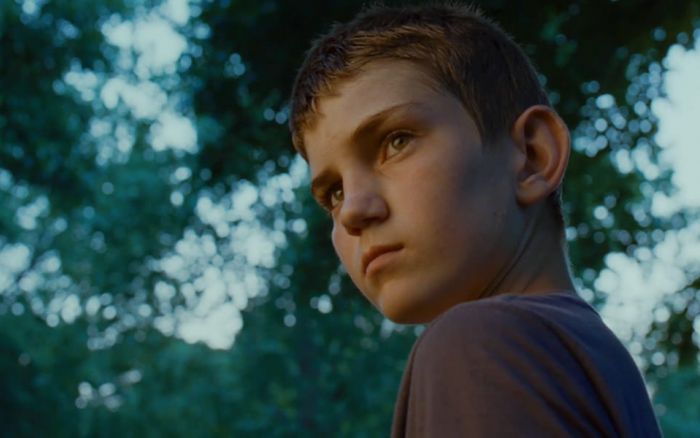
The Tree of Life is a beautiful treatise on the mercurial and subjective nature of memory. How childhood memories from decades ago can suddenly come crashing into our lives with shocking clarity and devastating effect. How memories can overlap and take us down completely unpredictable rabbit trails. How we can both deify and demonize within our memories. How even small slights and seemingly inconsequential moments can turn into tremendous scars that torment us even years later. How we are all unreliable narrators of our own lives, and yet, that does nothing to diminish the Truth that can be locked inside our memories.
2) The Father
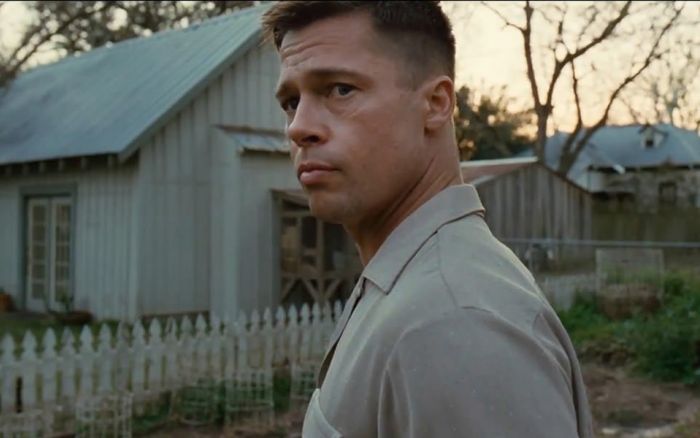
Even though The Tree of Life is primarily told through the eyes of Jack O’Brien (Hunter McCracken as a teenager, Sean Penn as an adult), and his mother (Jessica Chastain) provides much of the film’s ethereal beauty, the film exists solidly within the shadow — for better or worse — of his father (Brad Pitt). In many ways, Mr. O’Brien is the film’s thankless character, and also its most complex and well-developed. We hate him for the overbearing strictness and abuse, verbal or otherwise, that he visits upon his wife and children. But we see that he can also be loving and playful, and that he’s a hard-working employee, a faithful churchgoer, a talented musician, and an inventor — all laudable qualities. But more importantly, we’re given glimpses into his sense of failure as a man and a provider that, while not excusing his harsh behavior, does allow us to understand it and even find some sympathy for him.
3) The Father, Redux
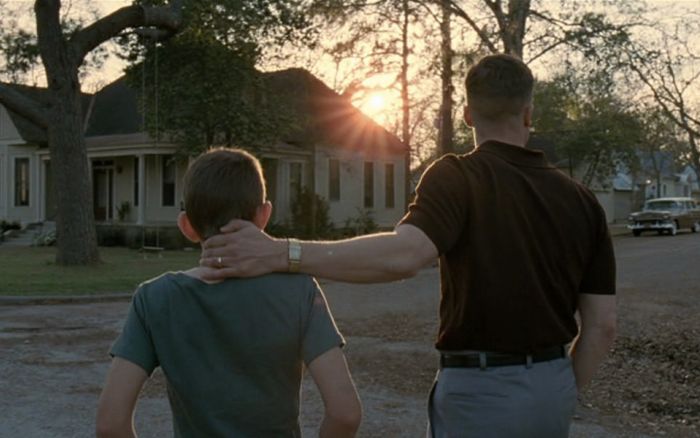
I was not prepared for how much this film would destroy me as a father. Perhaps “destroy” is too strong a word, but the anger and frustration that I had expressed towards my oldest son earlier in the week was still fresh in my mind as I sat there in the theatre — anger that I saw magnified and enlarged on the screen before me. And suffice to say, I was left a little shaken. (The first thing I wanted to do after leaving the theatre was hug my children.) So much of The Tree of Life is about how parents, and fathers in particular, shape their children, and how their children observe and see them, and how that affects them later in life. My oldest is still quite young, but how have I shaped him already? What sort of world have I been preparing him for? What values, good or bad, have I planted within his little soul? Ten, twenty, thirty years from now, what will be his earliest memories of me? What character flaws and strengths will he be able to trace back to me?
4) God
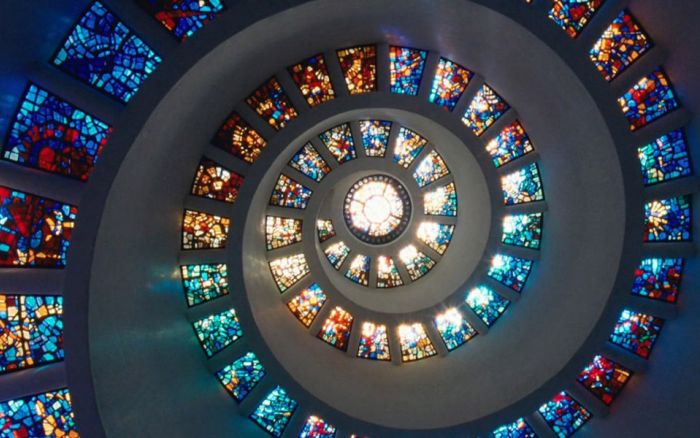
The Tree of Life is, in part, about how children are shaped by, and come to view their fathers. It’s also, in part, about how people are shaped by, and come to view, their Heavenly Father. Time and again, the various characters address, through their inmost thoughts, God Himself. They praise and thank Him, but more often than not, they ask questions, beg for answers, and plead for solace in the face of death, suffering, and tragedy.
Does God answer? That depends on what you mean by “answer.” The film begins with these striking words from Job 38: “Where were you when I laid the earth’s foundation… while the morning stars sang together and all the sons of God shouted for joy?” God asks that towards the end of Job’s book, and in doing so, He sidesteps all of the issues of pain and suffering raised by Job and his friends in the preceding pages. God doesn’t explain Job’s suffering. Instead, He puts Job in his place, asking “Who is this that darkens counsel by words without knowledge?” (Job 38:2) and then launches into a mind-boggling tour of creation and all of its wonders. In other words, He tells Job to sit down, shut up, and listen while He gives him a glimpse into how the universe works.
On the one hand, that answer seems cold and uncaring, as if God is simply brushing aside Job’s (and the O’Briens’) legitimate queries. On the other hand, it could be seen as a call for perspective, that there are indeed “things too wonderful for me to know,” as Job eventually confesses. But I believe that God provides another answer in the film, which I’ll get to in just a moment.
5) Creation
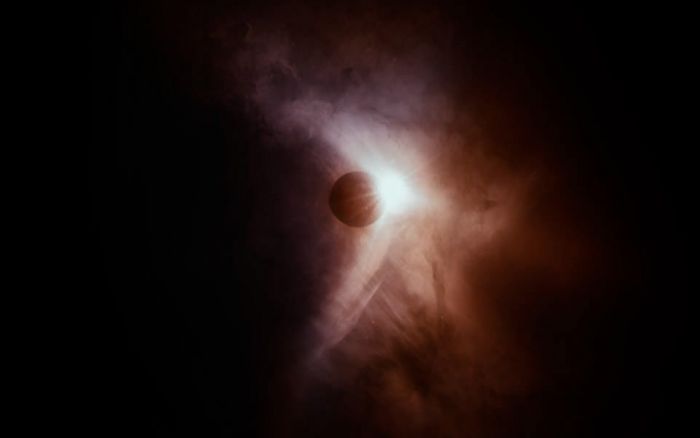
Speaking of mind-boggling tours of creation and its wonders, it’s impossible to not mention the film’s most striking moment: its storied creation sequence. It’s a seemingly random sequence, one in which director Terrence Malick — with the help of special effects master Douglas Trumbull — condenses billions of years of evolution (cosmological, physical, biological, etc.) into about 20 minutes, and drops it right down into middle of the film. Accompanied by the overwhelming strains of Zbigniew Preisner’s “Lacrimosa 2,” the sequence is a tour-de-force of the highest order. Indeed, the jaw-dropping imagery and Elzbieta Towarnicka’s penetrating voice very nearly flatten you in your seat.
(And without getting into the whole science/religion debate, I kept wondering what both my Christian and atheist friends would think of the sequence, which, to my mind, posited the idea of those billion-year-long processes being nothing short of the good, majestic, and humbling gifts of a creator God.)
6) A Glimpse of Heaven(?)
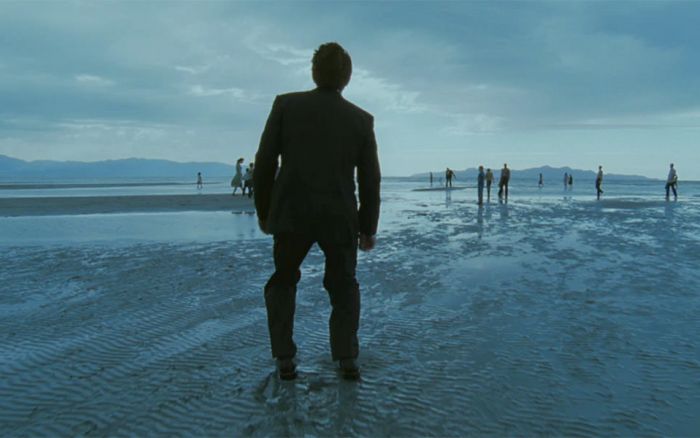
One of the few “spoilers” that I read about The Tree of Life concerned its ending: Some commenter on Facebook compared it to the end of Lost, in which the characters found themselves in some sort of Purgatory-like waiting room biding their time before moving on to… whatever was next. I’m not necessarily convinced that the film’s final sequence is actually set in Heaven or Purgatory, or some other location in the after-life (and I certainly think it’s far better than the ending of Lost, which I’ve criticized elsewhere). Rather, I saw it as a “glimpse” given to Jack by God in light of his constant questions regarding pain and suffering (“Where were You? You let a boy die. You let anything happen. Why should I be good? When You aren’t.”).
In “Job,” God doesn’t answer Job’s questions about suffering and loss. Rather, God gives Job a face-to-face encounter with Himself, and that proves enough for Job, who becomes humble, contrite, and accepting. Something similar happens in The Tree of Life. Essentially, God peels back the universe and gives Jack a glimpse of something tangible that provides a context for understanding, and coming to terms with, his pain, suffering, and loss, and so we see Jack end the film with a measure of peace. That being said, it is difficult to watch the final sequence and not think of something Heaven-like. And so, I was completely undone during by the entire sequence.
At the risk of sounding heretical, I don’t know what to think of Heaven. Yes, I look forward to it. And yes, I read in the Bible that it’ll be a place where “death shall be no more, neither shall there be mourning, nor crying, nor pain anymore” ( Revelation 21:4). It will be place where we shall see God’s face. That all sounds immensely lovely and I believe it to be true, but at the same time, being a fallen creature living in a fallen world, I can scarcely imagine what that will actually be like. I have little frame of reference for conceiving it. However, there is one aspect of Heaven that I can picture and relate to, and that’s of it being a place of reunion.
There are numerous relationships in my life that have been broken by time, geography, sin, foolishness, and death. And though I want those relationships to be restored, for the old hurts (some of which I inflicted) to be healed, I know that won’t happen in this life — not fully, anyway. Something has been lost within them, and it is irretrievable. But I believe that those relationships can be restored in Heaven. And so, during those final scenes, where Jack is “reunited” with his dead brother and the rest of his family, as well as a number of others, it evoked that sense, that deep longing for the true Reunion — and it left me in tears.
7) Self-Indulgence
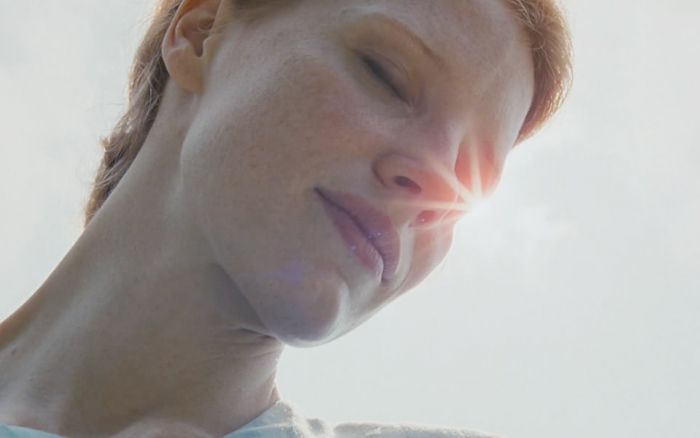
An easy criticism that can be leveled at The Tree of Life is that it’s self-indulgent, i.e., that it’s Malick being as “on the nose” with his tropes, trademarks, and conventions (e.g., lush natural imagery, existential narration, non-linear storytelling) as possible. An easy criticism, but one that’s pretty accurate. If a film whose semi-autobiographical story involves the very creation of the universe to help explain, in part, the tensions existing within a Waco, Texas family in the 1950s isn’t self-indulgent, then I don’t know what is. But you know, I’m OK with that.
The Tree of Life displays a sense of scope and ambition that is often sorely lacking in movies, and I’d much rather watch a film that goes for broke, aims for the stars, etc., and ends up being a little self-indulgent, than a film that simply hopes to slide by on the lowest common denominator. To paraphrase Chris Vognar’s review of Donnie Darko, The Tree of Life “may be too ambitious… but ambition and imagination still trump mediocrity any day of the week.”
8) The Way of the Brother
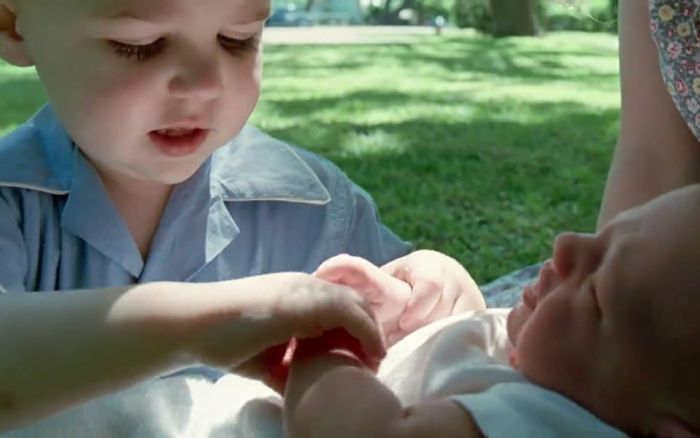
If you’ve seen any of the film’s marketing, than you’ve heard something about the grace/nature dichotomy that is espoused throughout the film. Basically, Jack’s mother represents “the way of grace,” which is marked by love, sacrifice, and forgiveness. Jack’s father, on the other hand, represents “the way of nature,” which is marked by selfishness. And those two themes are hammered home throughout the film by such lines as “Father, mother, always you wrestle inside me. Always you will.” But in a fascinating article, S. Brent Plate mentions a third way, “the way of the brother”:
…The Tree of Life is not merely about parental spouses acting out nature and grace in divergence from their childrens’ lives. The film, and the reality of growing up, is also deeply about sibling relationships with each other… which is where so many critics and observers have got the film wrong. The Father-Mother choice is there, but Malick provides a way out of the bifurcation: the way of the brother. This does not exclude the nature-grace distinction, but wraps it up in another form. And in distinction to all those old myths in which the siblings rival, fight, and kill each other, Malick’s sibling is redeemed through the other.
Where was everyone in that crucial third (or fourth, its hard to tell) part of the film? Did they all drift off into naps, hypnotized by the lulling music? There was a third category, a synthesis, a Hegelian aufhebung, a middle way that was articulated in the narrative voiceover as that of the “brother.” The film is told primarily from Jack’s point of view, but it is his younger brother R.L. who becomes the glue to the weavings of stories.
Indeed, the first word of the film is “brother,” and that is set up before the “nature vs. grace” distinction. Further, the final words of the film are addressed to the brother as well: “Guide us, to the end of time.” (Note: he is not talking to God here.) This third chapter is not oriented parentally but fraternally, as Jack and R.L. explore the woods with BB gun in hand, tempting (and sometimes torturing) the other, finding forgiveness, and finding in a deep way what forgiveness actually is. It is R.L. who embodied the synthesis between nature and grace, father and mother. The sibling relation is central to the film.
I don’t know quite what that means, or how it affects my interpretation of the film, but it’s a fascinating idea.
The Tree of Life is one of those films that sticks with you, and that can even change you. Already, I’ve found myself reflecting on, and even tempering, my actions and behaviors as a father as a direct result of the film’s exploration of fathers and sons. Furthermore, the film’s portrayal of brokenness and our deeply human responses to it, is poignant and striking.
And while I know little to nothing of Malick’s beliefs, and while I certainly don’t think he set out to make a “Christian” film, there is much within the film that deeply resonates with me because I am a Christian. Its portrayal of God’s majestic creation, its ruminations on the nature of suffering and evil, its pointing toward some manner of restoration and consummation — I have no doubt that these things can resonate within a viewer regardless of their own beliefs. But as a Christian, the film is one that provides me with a moment of contemplation and reflection.
To put it another way, I find that The Tree of Life, and thinking (and writing about it), to be a blessing.